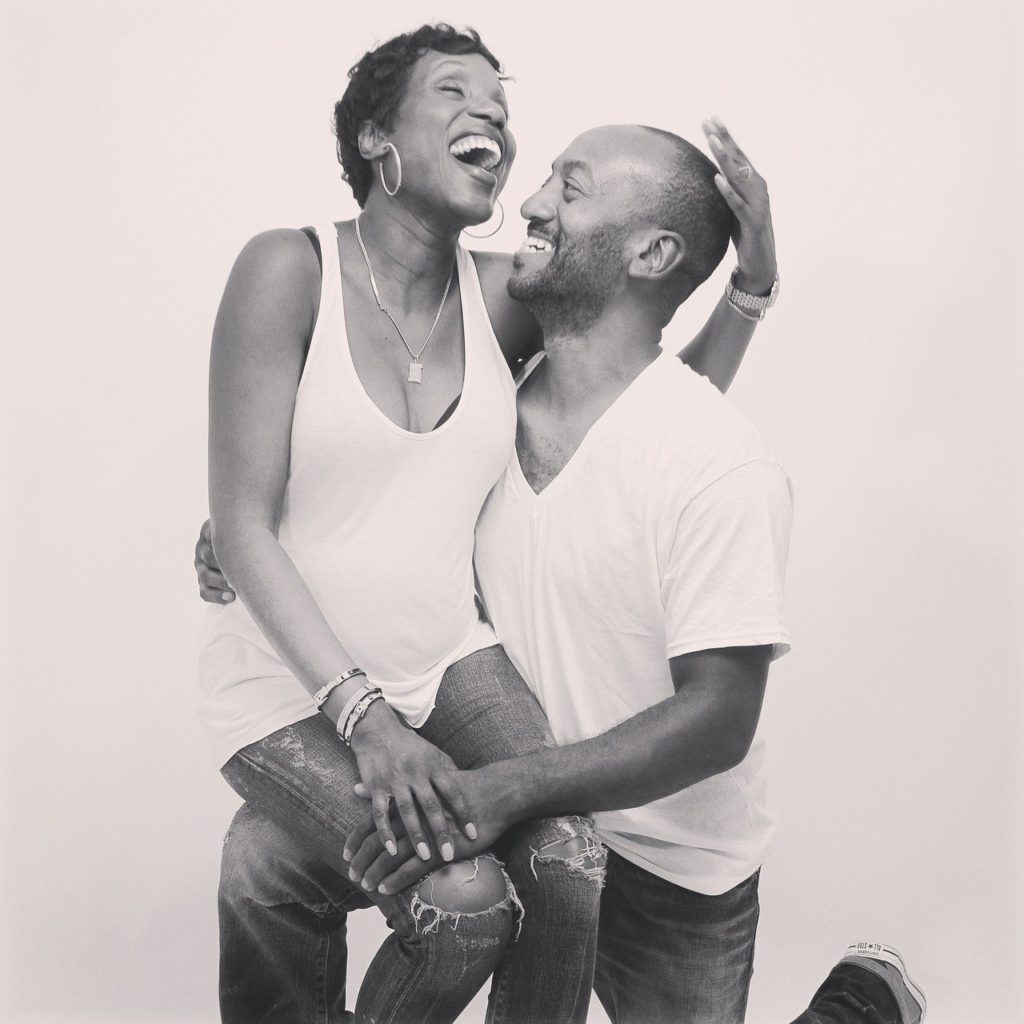Finding and keeping a partner is hard. But it’s even harder if you place unrealistic expectations on them.
Today, I’ll show you how identifying needs vs wants in a relationship can be the key to success.
Let’s get started.
Wants and Needs in a Relationship
Everyone has wants and needs, both in life and in relationships. They are essentially minimum requirements for us to feel happy, healthy, and fulfilled.
But what you think you need for a relationship to be successful might not actually be what you need.
One of the most common mistakes people make when entering into a relationship is confusing their wants with needs.
This can put unnecessary pressure and expectations on your partner and can even cause the relationship to fail.
To avoid this, it’s important to understand the difference between a need and a want.
What Is the Difference Between a Need and a Want?
Put simply, needs are the universal criteria required for a relationship to be successful.
As humans, we are both unique and incredibly similar. And when it comes to basic needs, such as food and shelter, we are all the same.
This also applies to relationships. The basic needs in a relationship are the same. According to Tony Robbins, there are six basic human needs. I’ll discuss how these apply to relationships later in this article.
A want is different from a need because it is not essential for our survival or physical or mental wellbeing.
Wants are simply our desires — the things that we wish to achieve or manifest in our lives, but our survival and wellbeing don’t depend on them.
Watch this video for a more detailed explanation of the difference between wants and needs.
Needs vs. Wants Psychology
According to Russell Grieger, Ph.D., we humans tend to transform wants into needs in our minds. We think that because we want something, this means we must have it.
While it’s healthy to have desires and goals and pursue them, believing that you need them leads to unhealthy attachments to outcomes and disappointment.
What Does Needs vs Wants Mean?
“Needs vs. wants” refers to the duality between needs, which are universal (such as food, shelter, love, or a sense of belonging), and our wants, which depend much more on our individual personalities, preferences, backgrounds, and cultures.
Is it Better to Be Wanted or Needed in a Relationship?
A relationship should always be a choice that both partners make. If one person becomes too dependent on the other — i.e., “needing” them, it can make the relationship turn toxic.
A healthy relationship is a partnership between two people who are able to fulfill their own basic needs and stand on their own two feet, with or without a partner. You shouldn’t “need” a partner to feel complete.
In that sense, it is far better to be wanted and have your partner choose you day after day.

Wants, Needs, and Non-Negotiables
Non-negotiables are basic requirements that must be met for the relationship to be healthy and successful. All needs are non-negotiable since they are essential for us to thrive both in life and relationships.
A want can also be non-negotiable, but wants are much more subjective than needs. Something that is unacceptable to you may not be a problem for the next person.
For example, if you are a vegan activist, being vegan may be a non-negotiable you look for in a partner.
Or, if you have a strong political affiliation, you probably don’t want to plan a life together with a person from the opposing party.
If you’re single, it’s a good idea to get clear on what your needs and wants are before entering a relationship.
Once you’ve identified them, decide which of the wants are non-negotiable for you.
But don’t be too restrictive, since having too many deal-breakers can limit your chances of finding a partner, or even drive away a suitable match.
Even if you’re already in a long term relationship, you can still do this exercise.
If you feel like you are not having your needs met, it may be helpful to make a list of your non-negotiables and discuss them with your partner.
What You Want vs What You Need in a Relationship
Needs and wants in a relationship are the foundation on which a long term partnership is built.
While relationship needs are non-negotiable, you can think of wants as desirable, but not required.
What I Want in a Relationship
One of the most common mistakes in relationships is that people expect their partner to be everything to them.
But that is not healthy or realistic, as no one is ever going to fit your idea of the “perfect” partner.
We are all unique and flawed, which is the beauty of being in a relationship — to love and accept your partner as they are, regardless of whether they check all the boxes, is what we call “unconditional love.”
Another mistake people make is thinking they need their partner to complete them.
Let’s get things clear: the only person you “need” is yourself.
If you come to a relationship expecting your partner to fill in your flaws, you are setting yourself up for disappointment.
It also puts pressure on the other person to be something they’re not, which can drive them away.
What are Wants and Needs in a Relationship?
Now that you understand the difference between wants and needs and the role they play in relationships, let’s take a look at the six basic human needs as applied to relationships.
Relationship Needs
Certainty or Comfort
For a relationship to be successful, both partners need to feel stable and secure.
If your partner is giving you mixed signals, it can undermine your confidence in yourself and in the relationship.
It may also be a sign that things are not quite right. Remember that both partners should want to be in the relationship for it to work out, so it’s important to make sure you’re both on the same page.
Having a conversation about your common hopes and dreams for the relationship can help create a greater feeling of security.
On the other hand, it may help both of you realize that you want different things — and that’s okay, too.
Uncertainty
Uncertainty as a need in relationships may seem counterintuitive, but stay with me on this one.
On the flip side of security, a healthy helping of uncertainty helps prevent hedonic adaptation from ruining your relationship.
You’ve probably experienced it before. Over time, even the most passionate of sparks can fade.
This doesn’t mean you should become ambivalent toward your partner or start treating them badly.
But it does mean you can both make a little extra effort to keep each other interested — after all, variety is the spice of life.
Try surprising them with a new date night activity, or even a makeover — they will feel like they’re dating a new person!
Related: Are Some People Meant To Be Alone? 21 Signs You’re That Person
Significance
We all want our lives to be meaningful, especially in the eyes of our beloved.
Fortunately, you don’t have to be famous or make a groundbreaking contribution to humanity to be significant.
Sometimes, knowing that you are important and make a difference in the eyes of just one person can be enough.
Love and Connection
This one is obvious. Without love and connection, a relationship is just two people trying to force themselves to be together — and ending up miserable.
We all need to give and receive love, but you can’t force the connection. If it’s not there, let that person go — and look for the one you will find it with.
Growth
There’s a popular relationship meme that says “the couple that goals together stays together.”
Humans need growth to be happy and healthy. But, since we are constantly shifting and evolving, we need to grow in the same direction as our partners if we want to avoid growing apart.
On the other hand, if you feel that you are stagnating in your relationship, it may be time to talk about what you both want from the relationship and how you see yourselves in the future.

Contribution
According to Tony Robbins, the meaning of life is giving, not receiving.
Many of us go into relationships full of expectations about what we hope to receive from it.
But this is a selfish way of approaching the relationship and is sure to lead to failure.
Instead of asking what your partner can do for you, ask what you can do for them.
Putting their needs and happiness above your own really is the secret to a happy and fulfilling relationship.
Relationship Wants
Wants, unlike needs, are subjective and vary for each individual. A want is usually something you desire but is not essential for the relationship to work.
Here are five examples of common wants in relationships. These are areas in which it’s important to keep an open mind — remember, no human is ever going to check every box.
A Partner for Everything
This is a common relationship want but, as previously mentioned, it’s neither healthy nor realistic to expect your partner to be everything to you.
Also, is that what you really want? Our lives are enriched by a variety of friendships and relationships with different kinds of people.
If you do everything with your partner, not only will you get bored with one another, but you will also miss out on the wide range of human relationships available to you.
Common Interests
This one may sound strange, but according to research, having a partner who is conscientious and nice leads to higher relationship satisfaction than sharing common interests.
If you have friends in your life who share your passions, your partner doesn’t necessarily have to fill that role for you.
Height (or Other Physical Traits)
Yes, physical attraction is important, of course. But have you ever thought about how many potential matches you pass up because you have a specific height requirement?
Lowering the bar (literally) can open up a whole world of options, so don’t get hung up on one specific trait.
Education Level
Some of the most intelligent people I know don’t have a university degree.
You could miss out on some amazing people if you only judge them by the certificates hanging on their walls.
Income
This one is more often a deal-breaker for women than for men.
And if you’re used to a certain lifestyle, it’s okay to want to continue that lifestyle and not lower your standards. It’s also okay to expect your partner to pull their weight financially.
But if you judge people based on how much they earn, you may be missing out on some great potential partners.
Gender roles these days have changed. There’s no reason why a man can’t stay home and look after the kids while the woman makes most of the money.
When it comes to income, keep an open mind without compromising your needs.

Now you know the difference between wants and needs in a relationship, what are you going to do differently?
Will you be a little less demanding of your partner?
Perhaps you’ll give someone a chance, even if they don’t fulfill all your wants?
Thanks for stopping by and reading my guide. Share this piece with a friend to help them too!
Related Content
Getting Over A Breakup Is A Chance – Get Over Your Ex Fast
